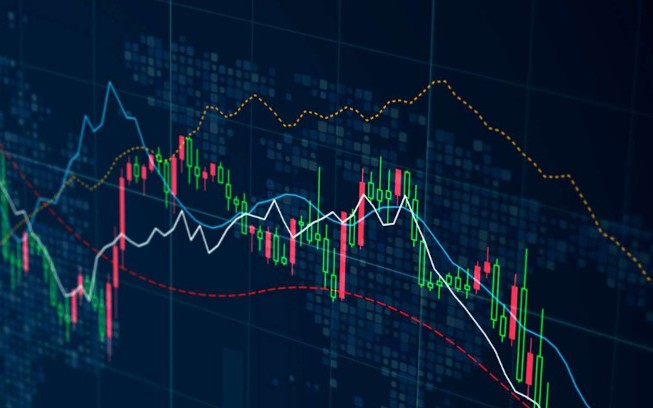
Forex Trading vs Stocks: Which is Right for You?
In the world of investments, two of the most popular avenues are trading forex vs stocks Trading PH and stock trading. Both markets offer unique opportunities and risks, making them attractive to traders and investors alike. This article dives into the fundamental differences between forex and stocks, helping you decide which market may be more suited to your trading style and investment goals.
Understanding Forex Trading
Forex trading, short for foreign exchange trading, involves buying and selling currencies on the foreign exchange market. This market operates 24 hours a day, five days a week, and is the largest financial market in the world, with a daily trading volume exceeding $6 trillion. Traders speculate on the fluctuations in currency pair values, aiming to profit from changes in exchange rates.
The forex market features a wide range of currency pairs, including major, minor, and exotic pairs. The major pairs, such as EUR/USD, USD/JPY, and GBP/USD, are the most liquid and frequently traded. Forex trading is characterized by high leverage, allowing traders to control large positions with relatively small capital. This can amplify profits but also increases risks.
Understanding Stock Trading
Stock trading involves buying and selling shares of publicly traded companies. The stock market is more regulated than the forex market, with well-defined rules and structures in place. Stocks represent ownership in a company, and their value can fluctuate based on market conditions, company performance, and investor sentiment.
Unlike forex trading, stock markets have specific trading hours, typically dictated by the exchange on which they are listed. The New York Stock Exchange (NYSE) and the Nasdaq are prominent examples, operating from 9:30 AM to 4 PM EST on weekdays.
Key Differences Between Forex Trading and Stock Trading
1. Market Hours
One of the significant differences between the two markets is their operating hours. Forex trading takes place 24/5, with sessions in major financial hubs such as Tokyo, London, and New York. This offers traders the flexibility to trade at any time that suits them. Conversely, the stock market operates within set hours, which can be limiting for those who prefer to trade outside standard times.
2. Leverage and Margin
Leverage in forex can be significantly higher than in stock trading. Forex brokers often provide leverage ratios as high as 100:1 or even more, allowing traders to control substantial amounts of currency with small investments. However, while higher leverage can result in larger profits, it also heightens the risk of significant losses. Stock trading typically offers lower leverage, often around 2:1, which mitigates some of the risks associated with trading.
3. Market Volatility
The forex market can experience high volatility, particularly during major economic announcements or geopolitical events. This can lead to rapid price movements, which may create both opportunities and risks for traders. On the other hand, stock markets may experience volatility due to earnings reports, company news, or market trends. However, individual stocks can sometimes be less volatile than currency pairs, leading to different trading strategies.

4. Assets Traded
Forex trading primarily revolves around currency pairs, meaning that traders speculate on one currency’s value in relation to another. In contrast, stock trading involves actual ownership of company shares. This difference signifies a fundamental shift in how traders engage with the markets, influencing their strategies and outlook.
Trading Strategies in Forex vs Stocks
The trading strategies employed in forex and stocks can vary significantly due to the differences in market behavior, volatility, and trading hours.
Forex Trading Strategies
Forex traders often use techniques such as scalping, day trading, and swing trading. Scalping involves making rapid trades to capitalize on small price changes, while day trading means opening and closing trades within the same day. Swing trading in forex may last from a few days to weeks, focusing on capturing price movements based on technical analysis.
Stock Trading Strategies
Stock traders might employ various strategies, including value investing, growth investing, and momentum trading. Value investors look for undervalued stocks that have potential for price appreciation, while growth investors focus on companies with high growth rates, regardless of valuation metrics. Momentum trading relies on trend analysis, attempting to capitalize on stocks that show upward or downward price trends.
Risk Management in Forex and Stock Trading
Regardless of the market, effective risk management is crucial for long-term success. Forex traders often use stop-loss orders to limit potential losses, given the market’s inherent volatility. Managing leverage is also an essential component of risk management, as excessive leverage can lead to significant losses.
Stock traders similarly utilize stop-loss orders and diversification of their portfolio to manage risk. They may spread investments across various sectors and asset classes to cushion against market downturns.
Conclusion: Choosing Between Forex and Stocks
Ultimately, the decision to engage in forex trading or stock trading depends on various factors, including your risk tolerance, trading style, and personal preferences. If you appreciate high liquidity, flexibility with trading hours, and the potential for significant leverage, forex may be the right choice for you. Conversely, if you prefer a more regulated environment with ownership in companies, stock trading could be more appealing.
Whichever market you choose, educate yourself thoroughly, develop a robust trading strategy, and practice sound risk management to enhance your chances of success. Happy trading!
